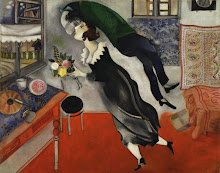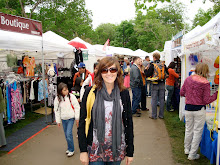It's been a crazy summer with a new foster baby, work, church stuff, traveling and lots of visitors, but I'm back in the blogging world. Surprisingly, I can honestly say that I'm happier now living with an illness than I was when I was healthy. I found the following great article that reinforces how I feel.
10 Things I’ve Learned From Chronic Illness
August 20, 2010
Jamee over at A New Kind of Normal shares some of the things illness has taught her:
Jamee over at A New Kind of Normal shares some of the things illness has taught her:
- There is some truth to the old adage “What doesn’t kill you will make you stronger” (even though I think that things that in fact may be killing us can still make us stronger). After my initial diagnosis I never thought that I would ever be able to be strong again but the past 7 years have taught me that I am stronger now than I ever was.
- Sometimes you need to be like Gibbs and go with your gut. If you feel like something is not right, it probably isn’t and you need to learn to be your own advocate. Ask questions and push for answers. While you cannot trust everything you read on the internet, it is important to research and educate yourself.
- Sometimes laughter is the best medicine. When I’m feeling blue, popping Finding Nemo can do wonders for my spirit, especially now that I can share it with my daughter. Dorie is a great doctor :)
- Doctors are not always right and there is nothing wrong with asking for a second opinion. I’m not sure my Celiac would have ever been caught had I not sought a second opinion.
- Buy cute pajamas to wear after surgery. It gives you a little bit of pampering when you need it most. If you know you’re going to be donning a hospital gown for a couple days, buy cute socks. Believe me, after 4 surgeries, it goes a long way!
- Finding a support team/group is absolutely essential. I do not know if I would have ended up where I am today with the support of others. After my endometriosis diagnosis I was lucky to find GirlTalk (an online support group through the Endo Research Center) that I became a member of and now serve as the Program Director. During our infertility treatments, I found a wonderful group of ladies that provided support and encouragement. It doesn’t matter if you find a support group that meets in person or online. Knowing that you are not alone gives you strength to keep fighting the fight.
- Cereal can be a perfectly acceptable meal for breakfast, lunch, and dinner.
- Your faith gets challenged. While I never doubted God and His grace and love, I had my share of questions. And it was through the wrestling and searching for answers that I learned more about God than I ever did in seminary. Not that I have all of the answers to my questions. In fact I may have more questions know than ever but I know who I serve and I know that I can trust His character and that that is enough for me.
- Find an outlet whether it is blogging, painting, or songwriting. Healing comes when we open ourselves up and acknowledge our hurts, hopes, and dreams. When I began this blog in 2007, I would have never guessed how redemptive it would become to my faith and health.
- You are more than your disease/diagnosis. It is important to never ever lose sight of that. I am determined to let the world know that while yes I may have multiple illnesses, I am a person and a warrior and I will not be overcome.
Jamee is a wife, and a mom. She says, “I am also a warrior battling multiple chronic illnesses. In life, I have learned that sometimes things happen and life doesn’t always go back to the way things were. Instead, you must find a new kind of normal. ” Read her blog A New Kind of Normal.

















